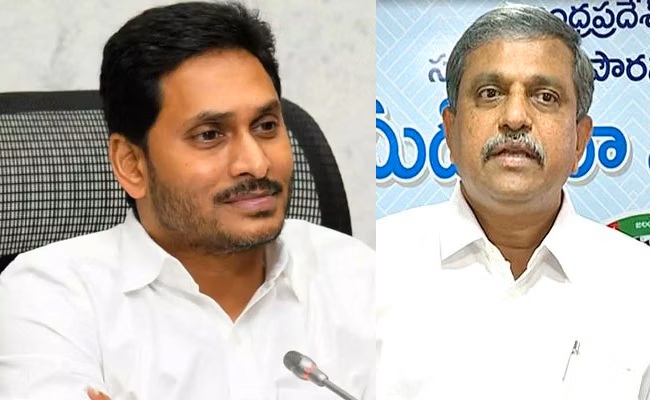Jagan Mohan Reddy’s Reaction to Sajjala’s Controversial Statement on Capital
The recent comments made by YSR Congress Party coordinator Sajjala Ramakrishna Reddy at a media event in Mangalagiri have stirred significant turmoil within the party. During his address, Sajjala suggested that the party’s president and former Chief Minister, Y.S. Jagan Mohan Reddy, has abandoned the three capitals plan, indicating a focus on governing solely from Amaravati if the party regains power in 2029.
This statement comes at a time when the YSRCP leadership has remained notably silent on the capital issue, choosing instead to emphasize the vulnerabilities of Amaravati, including its flood-prone regions. The juxtaposition of Sajjala’s remarks against the party’s current narrative raises eyebrows and questions among party members and the public alike.
Reports indicate that Jagan Mohan Reddy was visibly displeased with Sajjala’s comments during the media conclave. Witnesses noted that former minister Buggana Rajendranath Reddy appeared confused, seemingly unsure of how to respond to the unfolding situation.
Insiders reveal that Jagan confronted Sajjala following the comments, expressing frustration over his public assertions regarding Amaravati. “Have we ever discussed this in our meetings? Did I indicate that I’ve abandoned the three capitals plan?” Jagan reportedly questioned, reflecting his dissatisfaction with the implications of Sajjala’s statement.
An additional point of contention for Jagan was Sajjala’s declaration that Amaravati would remain the administrative capital, even as plans for a mega capital city between Guntur and Vijayawada, including Machilipatnam, are expressed. Jagan emphasized that such policy decisions should only be made after thorough party discussions, indicating that Sajjala’s public announcement undermines the party’s cohesive strategy.
The YSRCP chief’s strategy has been to maintain silence on the Amaravati capital issue. Vocalizing support for the three capitals at this juncture seems counterproductive to Jagan’s approach, as he aims to spotlight issues of corruption surrounding Amaravati’s construction and the adverse effects of extensive land acquisitions on farmers.
Sajjala’s comments have not only frustrated Jagan but also opened the door for significant trolling and criticism from opposition parties, including the Telugu Desam Party, Jana Sena, and BJP. As Jagan prepares for his next press conference, he will likely face tough questions regarding this emerging narrative, highlighting the intricate dynamics within the party and the importance of strategic communication in political discourse.
